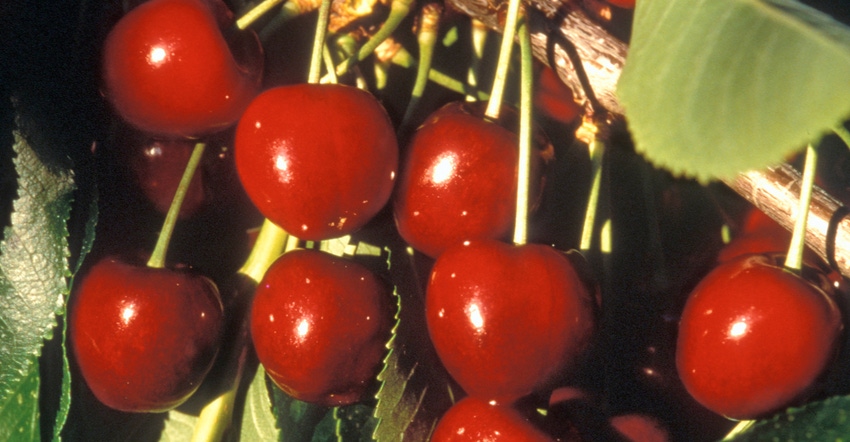January 22, 2020

What seemed like good news for local dried tart cherry producers only a few weeks ago has taken a turn for the worse — a turn that left them "shocked," "floored" and "depressed."
The U.S. International Trade Commission determined on Jan. 14 that dried tart cherries from Turkey are not injuring the U.S. industry. This means no antidumping and countervailing duty orders will be issued against Turkey.
This contradicts a final determination by the U.S. Department of Commerce in September, which confirmed Turkey was flooding the U.S. market with a subsidized dried cherry product at “less than fair value” — a fact the ITC noted in a statement announcing its decision.
“This is a sad, depressing day. I think we are done long term,” said Michael DeRuiter, an Oceana County cherry grower, processor and board member of the Michigan Farm Bureau. “The case has been heading in our direction the whole time, but in the last hour, it came up as a ‘no’ decision. There was no indication that it would end up like this.”
Previously, Michigan’s Shoreline Fruit LLC, Cherry Central Cooperative, Smeltzer Orchard Co., Graceland Fruit Inc. and the Utah-based Payson Fruit Growers Co-op filed a petition April 23 against Turkey, citing three years of import data claiming Turkey flooded the U.S. market with dried tart cherry product below the cost of production.
A determination by the ITC in favor of the Dried Tart Cherry Trade Committee would have resulted in up to a 628.9% tariff on Turkey’s product.
Instead, all five commissioners of the ITC — Chairman David S. Johanson and commissioners Rhonda Schmidtlein, Jason Kearns, Randolph Stayin and Amy Karpel — voted against the U.S. cherry industry.
A report from the ITC will be available by Feb. 18. It will include the commissioners’ reasoning behind the vote, with the opportunity to appeal to the U.S. Court of International Trade, said Peg O’Laughlin, public affairs officer for the ITC.
“The commission’s opinion will include the reasoning behind its vote,” she wrote in an email to the Michigan Farm Bureau. “No information will be available until the opinion is issued, and when it is issued, it will speak for itself.”
‘Ignoring the facts’
Turkey reportedly marketed its product for 89 cents per pound in 2018, down from the U.S. wholesale price of $4.50 to $5 per pound. DeRuiter said the industry will now deal with Turkey’s unfair trade practices for the foreseeable future.
“It’s shocking, to say the least,” he adds. “Picking my jaw up off the floor was my first reaction. I don’t think anyone saw this turning so fast, so late in the game, and now we won’t have the reasons for their determinations until February. I talked with a few members in the industry, and people are floored and blown away at the result.”
Michigan tart cherries represent about 75 percent of the nation’s total production.
Audrey Sebolt, horticulture specialist for the Michigan Farm Bureau, said those cherries were experiencing dips in (farmer) prices — from 35 cents to as low as 10 cents per pound — when 25 cents is needed to break even.
“Contributing to falling prices has been the importation of large volumes of government-subsidized Turkish products, which began with cherry juice concentrate,” Sebolt said. “Despite strong efforts, the cherry industry was unable to put forth a solid cherry juice concentrate dumping case against Turkey. The industry, however, felt that their dried tart cherry case was a winnable case, and after commerce’s ruling, the industry began to see some light at the end of a very dark tunnel. This ruling by the ITC is a devastating blow to that.”
Michigan U.S. Sens. Gary Peters and Debbie Stabenow also criticized the ITC’s final decision, calling it “unacceptable” and “ignor[ing] the facts.”
“I am outraged that the ITC has chosen to ignore its own previous determinations and side with Turkish exporters over Michigan cherry growers,” Peters said in a statement. “Michigan cherry growers spent millions of dollars in an already difficult year to elevate this issue. By making this stunning reversal, the ITC is undermining its own mission, disregarding the overwhelming evidence and is letting trade abusers off the hook.”
Stabenow, a ranking member of the U.S. Senate Ag Committee, said Michigan cherry growers endure enough weather challenges without having to “deal with foreign competitors who cheat and violate our trade laws."
“I am outraged that the International Trade Commission has failed to hold Turkey accountable after investigations clearly showed egregious violations of the rules,” Stabenow said, vowing that she and Peters will continue to try to level the playing field for Michigan cherry growers.
Although DeRuiter appreciates the support from Peters and Stabenow, he sees the bigger picture for a U.S. cherry industry that Michigan helped create. And isn’t pretty, he said.
“We will try to pick up the pieces,” DeRuiter said. “Can our industry survive if Turkey owns both the juice and dried tart cherry market? We paid and promoted and built these markets, and now … we can’t compete at the prices they are dumping into the country. ITC is allowing them to continue dumping into the country. What Turkey wants, they get. That’s the scary part for cherry growers.”
Source: Michigan Farm Bureau, which is solely responsible for the information provided and is wholly owned by the source. Informa Business Media and all its subsidiaries are not responsible for any of the content contained in this information asset.
You May Also Like




